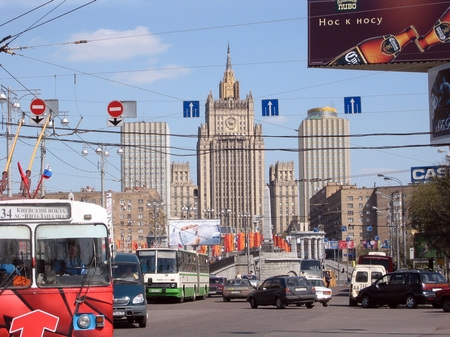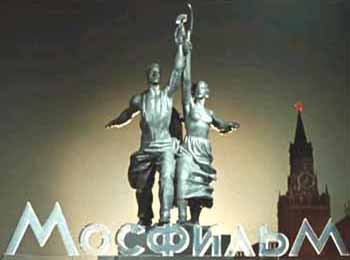Every once in a while I try to watch whatever is on RTR-Planeta to get a dose of Russian. Every once in an even greater while the internet is uncongested enough that I can watch a non-news program.
After one one of those rare occasions a few weeks ago I told my wife I had seen a show that looked like our old TV westerns. It started with a young family traveling by horse-drawn wagon across a dry wilderness, the man with gun walking alongside the wagon until he was captured by some of the natives. We joked that it should probably be called an “eastern” instead of a western.
It turns out that that’s exactly what they’re called. Over at Arts & Letters Daily I found this article from the New Statesman about Soviet cowboy movies.
What Brezhnev and the rest of the Politburo really wanted, however, was a home-grown product. So the Committee of Cinematography ordered screenwriters to create Soviet supermen who would gallop faster and pull the trigger quicker than the hero of any western. White Sun (1969) was the first big hit, paving the way for a genre of “easterns”. In some films, the backdrop is the steppes or Siberia. The Ural Mountains stand in for Monument Valley, the Volga replaces the Rio Grande and the heroes sport civil war-style budyonovka hats or fur-lined shapkas instead of Stetsons.
And I didn’t know until now that that type of cap, like the one worn by the officers guarding Gary Kasparov at his showtrial, was called a shapka (or ushanka). My father had one in the 50s when we lived in North Dakota. In fact, my brother and I had caps somewhat like that when we were kiddies, though I think they had a small brim rather than the fur on the front — and just fake fur on the earflaps, probably. Once parkas came into fashion we didn’t wear caps like that anymore.
The ones worn by the gulag prisoners in the movie Vokzal dlya Dvoikh are not nearly as thick and luxurious looking as the ones worn by the officers. And theirs are worn with the flaps down.


